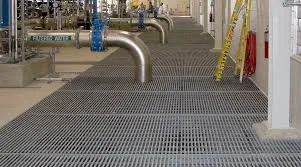
-
 Afrikaans
Afrikaans -
 Albanian
Albanian -
 Amharic
Amharic -
 Arabic
Arabic -
 Armenian
Armenian -
 Azerbaijani
Azerbaijani -
 Basque
Basque -
 Belarusian
Belarusian -
 Bengali
Bengali -
 Bosnian
Bosnian -
 Bulgarian
Bulgarian -
 Catalan
Catalan -
 Cebuano
Cebuano -
 China
China -
 China (Taiwan)
China (Taiwan) -
 Corsican
Corsican -
 Croatian
Croatian -
 Czech
Czech -
 Danish
Danish -
 Dutch
Dutch -
 English
English -
 Esperanto
Esperanto -
 Estonian
Estonian -
 Finnish
Finnish -
 French
French -
 Frisian
Frisian -
 Galician
Galician -
 Georgian
Georgian -
 German
German -
 Greek
Greek -
 Gujarati
Gujarati -
 Haitian Creole
Haitian Creole -
 hausa
hausa -
 hawaiian
hawaiian -
 Hebrew
Hebrew -
 Hindi
Hindi -
 Miao
Miao -
 Hungarian
Hungarian -
 Icelandic
Icelandic -
 igbo
igbo -
 Indonesian
Indonesian -
 irish
irish -
 Italian
Italian -
 Japanese
Japanese -
 Javanese
Javanese -
 Kannada
Kannada -
 kazakh
kazakh -
 Khmer
Khmer -
 Rwandese
Rwandese -
 Korean
Korean -
 Kurdish
Kurdish -
 Kyrgyz
Kyrgyz -
 Lao
Lao -
 Latin
Latin -
 Latvian
Latvian -
 Lithuanian
Lithuanian -
 Luxembourgish
Luxembourgish -
 Macedonian
Macedonian -
 Malgashi
Malgashi -
 Malay
Malay -
 Malayalam
Malayalam -
 Maltese
Maltese -
 Maori
Maori -
 Marathi
Marathi -
 Mongolian
Mongolian -
 Myanmar
Myanmar -
 Nepali
Nepali -
 Norwegian
Norwegian -
 Norwegian
Norwegian -
 Occitan
Occitan -
 Pashto
Pashto -
 Persian
Persian -
 Polish
Polish -
 Portuguese
Portuguese -
 Punjabi
Punjabi -
 Romanian
Romanian -
 Russian
Russian -
 Samoan
Samoan -
 Scottish Gaelic
Scottish Gaelic -
 Serbian
Serbian -
 Sesotho
Sesotho -
 Shona
Shona -
 Sindhi
Sindhi -
 Sinhala
Sinhala -
 Slovak
Slovak -
 Slovenian
Slovenian -
 Somali
Somali -
 Spanish
Spanish -
 Sundanese
Sundanese -
 Swahili
Swahili -
 Swedish
Swedish -
 Tagalog
Tagalog -
 Tajik
Tajik -
 Tamil
Tamil -
 Tatar
Tatar -
 Telugu
Telugu -
 Thai
Thai -
 Turkish
Turkish -
 Turkmen
Turkmen -
 Ukrainian
Ukrainian -
 Urdu
Urdu -
 Uighur
Uighur -
 Uzbek
Uzbek -
 Vietnamese
Vietnamese -
 Welsh
Welsh -
 Bantu
Bantu -
 Yiddish
Yiddish -
 Yoruba
Yoruba -
 Zulu
Zulu
fiberglass trough cover
The Benefits of Fiberglass Trough Covers
Fiberglass trough covers are emerging as a popular choice for a variety of applications, ranging from agricultural uses to industrial settings. These covers, made from a composite material that combines plastic fibers with glass fibers, offer a host of advantages that make them a superior option compared to traditional materials like metal or wood.
Durability and Longevity
One of the primary benefits of fiberglass trough covers is their exceptional durability. Unlike metal, which can rust and corrode over time, or wood, which is susceptible to rot and insect damage, fiberglass is highly resistant to harsh environmental factors. This means that a fiberglass trough cover can withstand extreme temperatures, high moisture levels, and UV radiation without degrading. As a result, investing in fiberglass covers often translates to lower maintenance costs over time and a longer lifespan.
Weight and Ease of Installation
Fiberglass covers are significantly lighter than their metal counterparts, making them easier to handle and install. This is particularly advantageous in settings where manual labor is required for installation. The lightweight nature of fiberglass allows for simpler transportation and handling, reducing labor costs associated with installation. Moreover, fiberglass covers can be manufactured in a variety of shapes and sizes, allowing for custom-fit solutions that cater to specific trough designs.
Insulation Properties
Another appealing aspect of fiberglass is its excellent insulation properties. The material acts as a barrier to temperature changes, helping to maintain stable conditions within the trough. This is especially beneficial in agricultural settings where the temperature of water or stored materials needs to be regulated. By keeping temperatures consistent, fiberglass trough covers can help to prolong the life of the products stored beneath them, whether they are crops, livestock, or other valuable resources.
fiberglass trough cover

Environmental Benefits
With an increasing focus on sustainability, fiberglass trough covers have emerged as an eco-friendly option. The manufacturing process of fiberglass can be less impactful on the environment compared to metals, which require extensive mining and refining. Additionally, fiberglass can be produced using recycled materials, further reducing its environmental footprint. Once the cover reaches the end of its lifecycle, it can also be disposed of responsibly, aligning with modern sustainability practices.
Cost-Effectiveness
While the initial investment in fiberglass trough covers may be higher than that of other materials, the long-term savings are significant. The longevity, low maintenance needs, and energy savings from thermal insulation contribute to a lower total cost of ownership. This cost-effectiveness is an essential factor for businesses and farms looking to optimize their operations without compromising quality.
Aesthetic Appeal
Fiberglass is also customizable in terms of color and finish, allowing users to match the trough covers with their existing infrastructure or branding. This flexibility adds an aesthetic appeal that is often lacking in more traditional materials. In addition, fiberglass can be molded into intricate shapes, enabling designers to create covers that are both functional and visually appealing.
Conclusion
In conclusion, fiberglass trough covers are a versatile and effective solution for various applications. Their durability, ease of installation, insulation properties, and environmental benefits make them a wise choice for those looking to invest in reliable infrastructure. While their initial cost may be higher, the long-term savings and aesthetic flexibility make fiberglass an excellent investment. As industries continue to seek better solutions, fiberglass trough covers stand out as a forward-thinking choice that meets both practical and environmental needs. Whether for agricultural use, industrial applications, or aesthetic purposes, fiberglass trough covers are deserving of consideration.
Latest news
-
Exploring the Benefits of Top Hammer Drifter Rods for Enhanced Drilling PerformanceNewsJun.10,2025
-
High-Precision Fiberglass Winding Machine for GRP/FRP Pipe Production – Reliable & Efficient SolutionsNewsJun.10,2025
-
FRP Pipes & Fittings for Shipbuilding - Corrosion-Resistant & LightweightNewsJun.09,2025
-
Premium FRP Flooring Solutions Durable & Slip-ResistantNewsJun.09,2025
-
Premium Fiberglass Rectangular Tanks Durable & Lightweight SolutionNewsJun.09,2025
-
Tapered Drill String Design Guide Durable Performance & UsesNewsJun.09,2025









